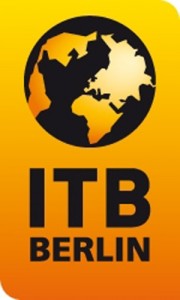 IPK International and ITB Berlin analyse trends in foreign trips by young people since 2007 – lower birth rates and social changes result in declining figures – Germany is the new favourite destination of young travellers
IPK International and ITB Berlin analyse trends in foreign trips by young people since 2007 – lower birth rates and social changes result in declining figures – Germany is the new favourite destination of young travellers
Demographic changes are impacting on the European travel industry. Since 2007 the number of foreign trips by young Europeans has declined by ten per cent. This segment is thus one of the few in the European travel market showing a negative trend. The continuous decline in the birth rate is resulting in a falling number of younger consumers while the number of older travellers is rising. These are the results of a special evaluation of the World Travel Monitor® from IPK International that was commissioned by ITB Berlin.
Germany grows by 60 per cent
In 2014, young Europeans aged 15 to 24 went on 54 million foreign trips and spent about 430 million nights abroad on these trips. Compared to 2007, the number of foreign trips dropped by about one per cent a year. In 2007, young Europeans preferred to travel to Spain, followed by France, Italy and Great Britain. However, youth travel to these four countries declined by 1-2 per cent a year up to 2014. In contrast, Germany rose in popularity among young travellers and has established itself since 2013 as their most popular destination. In total, Germany recorded growth of 60 per cent to reach more than seven million young European visitors. The positive media reporting and accompanying marketing measures at the football World Cup in Germany in 2006, which contributed to a worldwide image of Germany as a hospitable and open country, played an important role. Other destinations such as Sweden, Croatia and the Netherlands also enjoyed higher young visitor volumes. In terms of the most popular city destinations, London is just ahead of Paris, followed by Copenhagen, Munich, Berlin and Amsterdam.
Sun, beach and sea
Travelling for a holiday. That is the main motivation for the clear majority of young Europeans, with one third going on a short holiday trip. The other reasons for travel include educational trips or visiting friends (without any holiday motivation). So-called ‘sun & beach’ holidays make up about one quarter of all foreign stays. Sunbathing, swimming and relaxing as well as shopping and going for meals are some of the most important activities.
City trips and tours closely follow beach holidays in popularity. The remaining quarter comprises other types of leisure travel, such as events, summer and winter sports, and travel for special occasions (such as weddings or birthdays). Only 12 per cent of trips are for business purposes, where MICE trips to conferences, seminars and trade fairs and on incentives dominate.
Slight growth for ‘couchsurfing’
Fewer than half of young foreign holidaymakers book hotel accommodation, although the proportion has continuously risen by about one per cent a year since 2007. The share of free accommodation has declined by the same rate during this period. A slight increase in new forms of accommodation such as couchsurfing or internet bookings of private flats has only been apparent since 2014. On average, young Europeans spent slightly less than 700 euros per trip in 2014, and slightly more than 80 euros per night.
Dr. Martin Buck, Messe Berlin’s Director of Travel & Logistics, comments: “The consequences of demographic changes are already being experienced in the European travel industry. This trend can only intensify, so now is the time to take the right steps. Precise offers tailored to the needs of the different target groups will ensure that both younger and older people retain their desire to travel.”
Alongside special evaluations of IPK International’s World Travel Monitor®, ITB Berlin will also publish the core data of the World Travel Monitor®, including the assessments of some 50 tourism experts from more than 20 countries, in the ITB World Travel Trends Report 2015/16 in early December. The final results of the World Travel Monitor® for the entire year, as well as the latest forecasts for 2016, will be presented by Rolf Freitag, president of IPK International, at the ITB Future Day during the ITB Berlin Convention. The World Travel Monitor® is based on the findings of representative interviews carried out every year with more than 500,000 people in over 60 travel markets worldwide. It has been conducted regularly for more than 20 years and is recognised as the largest continuous survey examining global travel trends.
About ITB Berlin and the ITB Berlin Convention
ITB Berlin 2016 will take place from Wednesday to Sunday, 9 to 13 March. From Wednesday to Friday ITB Berlin is open to trade visitors only. Parallel with the show the ITB Berlin Convention, the largest event of its kind, will be held from Wednesday, 9 to Saturday, 12 March 2016. More details are available at http://www.itb-convention.com. ITB Berlin is the global travel industry’s leading trade show. In 2015 a total of 10,096 companies and organisations from 186 countries exhibited their products and services to 175,000 visitors, who included 115,000 trade visitors.











